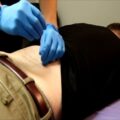Chronic knee (OA) is on the most common diseases of advanced age. There are various treatments for a degenerated knee joint. Not all individuals are want surgery, are candidates for surgery, and some even after surgery people may still have knee pain. One of the latest innovations in knee pain management is using radiofrequency ablation to treat the nerves around the knee.
It is a minimally invasive, nonsurgical treatment option with the potential to relieve pain where other more conventional therapies have failed, and in the case of surgery – avoid it altogether. When compared to a total knee replacement:
Traditional Joint Replacement
- Can be extremely expensive even with good insurance
- Performed in hospital
- Inpatient admission
- Required general anesthesia and regional anesthesia
- Risk of post-surgical or nosocomial infection
- Requires 4 weeks of blood thinners (anticoagulation)
- Long postoperative recovery period requiring inpatient rehab
- Can be weeks to months before returning to work
- Significant postoperative pain
Genicular Nerve Neurotomy
- Inexpensive and covered by most insurance
- Performed in your doctor’s office
- Outpatient procedure
- Can be done with only local anesthetic
- Minimal risk of infection
- No need for blood thinners
- Virtually non-existent recovery period
- In many cases, can go back to work the same day
- Little to no postoperative pain, typically controlled with NSAIDs
- Can return to normal activities in a matter of days







